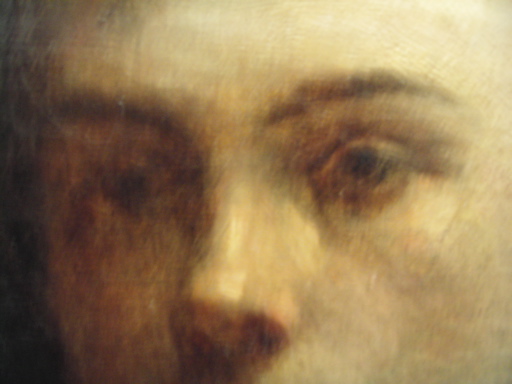July 02, 2005
"The Coffee Exporter"

I am always trying to remember, without ever asking him, which Rimbaud biography was declared defintive by John Tranter several drinks into the one night I met him. Jennifer Moxley, I should say, who so recently mentioned Rimbaud in a context I'm not sure I quite comprehend, was there that night, as was Steve Evans, himself no stranger to insight regarding Rimbaud. As for Tranter, one can be certain his preference wasn't for Graham Robb's, which was not-yet-published and, one trusts, too dully-written to please.
Though Tranter himself passed over it with a single sentence in a different review it must be Enid Starkie's Arthur Rimbaud, esp. since I recall Tranter mumbling something about "still..." or "it remains...." But what to make of Starkie's peculiar (or perhaps not-so-peculiar) panic as she approaches Rimbaud's disputed time in the Paris Commune: the committee was to be a kind of soviet which eventually would become all-powerful in the government of the country, she writes of Central Committee of the Fédérés, after referring to the revolutionary National Guard's supposed endeavor to set up a military dictatorship at the Hotel de Ville.
But of course, such dreams don't walk alone; on the same page, Starkie graciously elides the hordes of disgusted demobilized soldiers, half-starved and ragged, the rogues and adventurers of every nationality who are always able, like carrion crows, to smell out a sick or dying body....They flocked into Paris, Irishmen, Italians, Poles and Arabs, all on the pretext of helping France maintain her liberty, but all adding to the general confusion and to her ultimate suffering and loss.
Starkie's life is published in 1961, near the height of Cold War anxiety; still, it's interesting that the time-traveling fantasy of always-incipient communist despotism must appear as a terror inseparable from a generalized race/class panic -- and that the fascist language of the health of the civic body must haunt such discourse unfailingly. Well, so it goes, so it must; far more than poetries or paintings, eras get the biographies they deserve, even if -- no, wait, exactly because -- they can claim to be about other eras entirely. "The sublime displacements of biography." So what would be the moment in which the great biography of Rimbaud could be written? This is the most practical question. What would it look like, how would it feel?
Posted by jane at July 2, 2005 02:47 AM | TrackBack